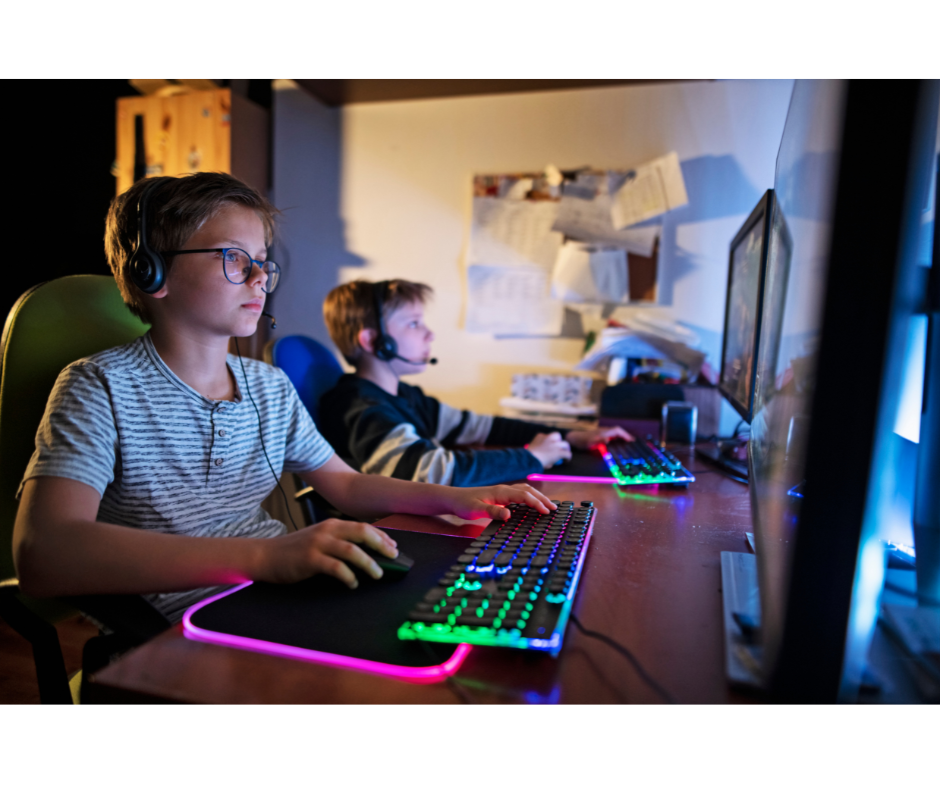
The Impact of Reality TV on Generation Z

Generation Z, the youngest population social scientists are studying today, was born about the same time as Reality TV. You might remember the precursor to popular reality television was a 1998 Jim Carrey movie called, “The Truman Show.” It was a film about an unsuspecting man living in an average U.S. town whose entire life was monitored by television viewers, 24/7.
According to Wikipedia, reality shows were actually introduced 30 years ago.
“Reality television is a genre of television programming that documents purportedly unscripted real-life situations, often starring unknown people rather than professional actors. Reality TV emerged as a distinct genre in the early 1990s with shows such as The Real World, then achieved prominence in the early 2000s with the success of the series Survivor, Idols, and Big Brother, all of which became global franchises.” Soon, we saw Keeping Up with the Kardashians, The Voice, The Bachelor and others that took unknown people and made them popular.
I believe there is an association between Gen Z and realty TV. They imitate each other.
First, all their lives they’ve seen ordinary people with little or no talent become stars. It was almost overnight. Later, those people are often featured on shows like “Dancing with the Stars” as celebrities. It’s surreal to older adults but normal for them. Criticisms of reality TV shows say they are intended to exploit participants; that they make stars out of untalented people unworthy of fame and that they glamorize vulgarity. Sometimes you can just be zany and gain a following. I’m not blaming Gen Z for this. This is the work of the adults, not the kids. We created this world, without recognizing how it would affect them.
Second, because of how parents and schools have led them, kids’ lives include adventure but are controlled and scripted much like reality TV. Critics argue that reality television shows do not accurately reflect reality, in ways both implicit (participants are in artificial situations), and deceptive (misleading editing, participants being coached on behavior, storylines generated ahead of time, scenes being staged). Some shows are rigged for the favorite to win. Does this sound familiar? Adults have over-programmed and structured kids’ lives today so that the stakes are low, safety is high and they seldom get a real taste of how life really works.
Third, much like the unrealistic and speedy outcomes of reality TV shows, Gen Z kids can expect results fast. It takes relatively few episodes for a season of reality TV show to produce a “star” or a “winner” who can now boast about having arrived as a survivor, a chef, a bachelor or bachelorette, a dancer—you get the idea. Does life really work that way? Further, what we see in a reality TV show are “highlights” not the long, gritty, unglamorous work that produces an “America’s Got Talent” winner. In fact, highlight reels have produced a false sense of the work that goes into success for a generation of kids. It’s like watching the montage on a Rocky movie where in two minutes we see him doing pushups and pullups and the next thing we see is Rocky beating Apollo Creed for the heavyweight championship of the world.
Fourth, competition-based reality shows typically feature a gradual elimination of participants, either by a panel of judges, by the viewership of the show, or by the contestants themselves. This vividly resembles the lives of Generation Z members. Thanks to the adult population (parents, coaches and teachers) most of their life is not only over-programmed but created to be a competition against peers for a trophy, ribbon, scholarship or prize. After interviewing dozens of members of Generation Z, I noticed that many burned out on soccer, tennis or piano in middle school because parents pushed them to master this one “focus” instead of being well-rounded individuals. We push them to make the grade, make the cut, make the team, make the honor roll and make the scholarship so they can make the money later. It has cultivated a very anxious, stressed-out generation of kids. Further, it’s fostered a young population who is more concerned with how they appear to others than who they really are.
Fifth, reality television’s global success has become, in the view of some analysts, an important political phenomenon. In some authoritarian countries, reality-television voting has provided the first opportunity for many citizens to vote in a free and fair wide-scale “election”. In the U.S., where we’ve always experienced this, I believe a chief outcome has been a population of “armchair quarterbacks” who’ve been conditioned to judge, criticize and degrade others. While Simon Cowell was usually accurate in his estimation of talentless “American Idol” contestants, we were entertained by his hyperbole and harsh judgments of others. Now, Gen Z (and anyone else for that matter) can hide behind a smartphone screen and level our opinions on the value of others. I am not sure that’s a healthy habit as they enter adulthood. Data shows Generation Z is better at criticizing than receiving criticism.
Finally, I believe reality TV has enhanced and accelerated their desire to be famous. Why? Anyone and everyone can do it. Today’s kids spend so much time on a screen observing others gaining likes, views and followers and assuming fame is what they need as well. A disproportionate percentage of Generation Z wants to break into the entertainment industry. I witnessed firsthand child actors and their parents moving to Burbank or Hollywood for that very purpose. Millions more seek to be social media famous, on YouTube, Instagram or Tik Tok. I am not suggesting this is evil. I am only saying we’ve created a world where they often yearn for notoriety instead of identifying their real talent and seeking to serve others by using it.
Instead of reality television, I saw we gently introduce them to reality.
By this I mean, we gradually prepare them for adulthood by leading them well:
• Foster a healthy work ethic, not for show but to experience what discipline can do.
• Enable them identify their genuine talents or gifts and use them to serve others.
• Equip them to solve problems rather than post selfies or gain viewership.
• Prepare them for authentic relationships that require work to cultivate.
• Empower to chase a meaningful goal that is reached over time, not overnight.
I have a friend who auditioned and was invited to appear on a reality television show. He learned firsthand what goes on behind the scenes and told me it could hardly be called “real.” He eventually opted off the show, being unwilling to participate in shenanigans that were contrived and used as click bait for viewers.
It’s time we help Generation Z choose reality over reality television.






